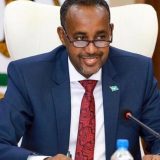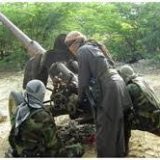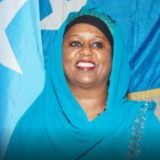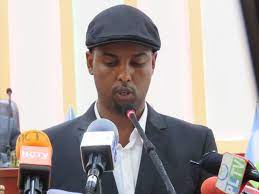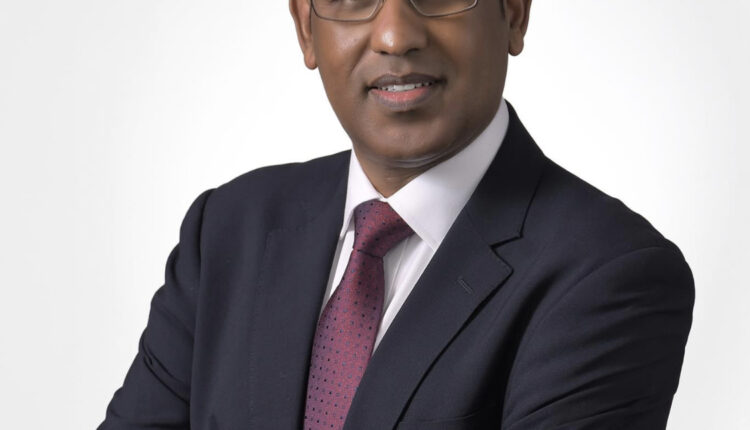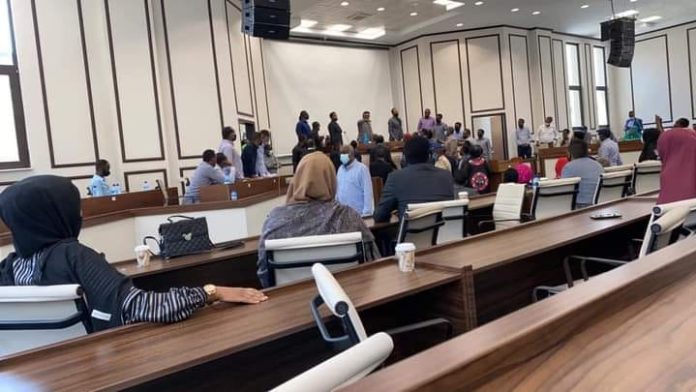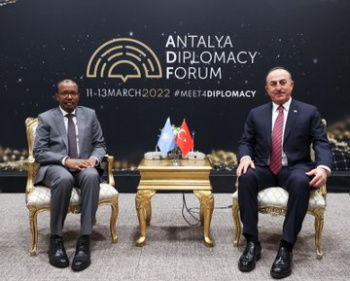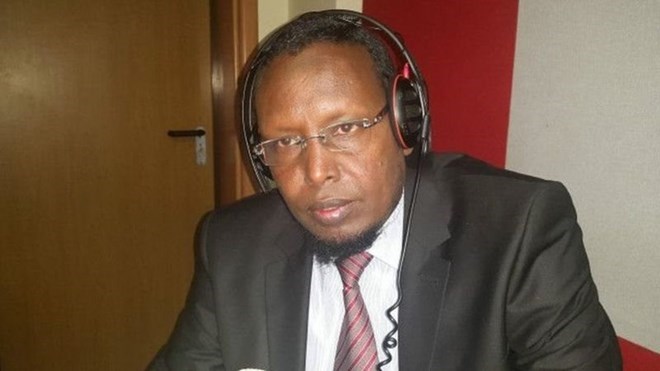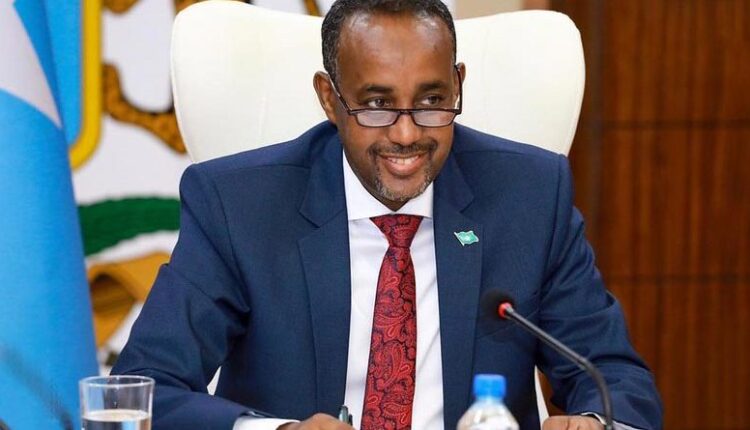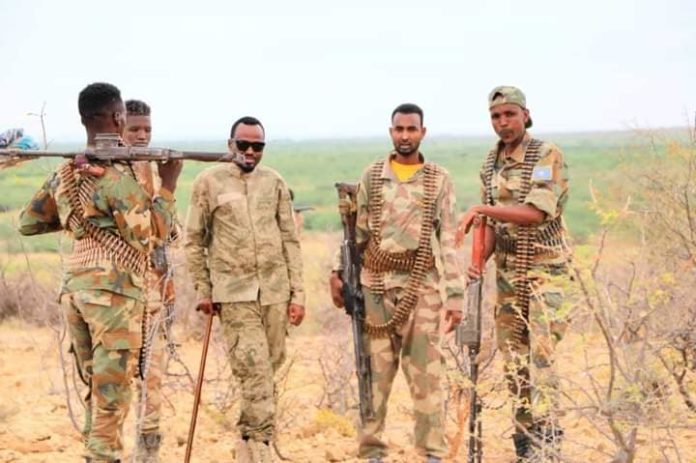Clan federalism : conflicts and tension in Somalia ?

By definition, the term federalism is used to describe a system of government in which sovereignty is constitutionally divided between a central government and constituent political units, such as states or provinces. In other words, a federal system represents a form of government in which power is distributed between a central authority and a number of constituent territorial units.[2] At present, very few countries, like , , , , and apply this federalist system. In our African continent, out of around 53 independent states, only two countries, namely, and are currently organized as federal governments, if my memory serves me well. The reason why so few nations today follow the federal system is that, in the view of some experts, it is too expensive and too difficult to apply and manage properly.
This is so, because to become a real federal nation, a country needs to have several overlapping layers of government, i.e., a central federal administration and state governments (each having its own three branches of government, namely, the executive, the parliamentary and the judiciary) plus often additional units in the form of regions, provinces and districts.In the case of Somalia’s new federal system, the country is planned to be composed of: (a) The transitional Federal Government; (b) State Governments [two or more regions may federate]; (c) Regional Administrations; and (d) District Administrations. In this regard, each state will have its own Governor or President, its own parliament and its own courts (first level, appeal, and supreme courts). Besides, the constituent states will finance and manage separately their own internal affairs (i.e., internal security, education, health, agriculture/animal husbandry, water resources, etc.); and they will basically share, among themselves, foreign relations and defense arrangements only. How can a penniless country, like , which has been undergoing a seemingly endless civil war in the past 17 years, and whose governmental institutions have all been destroyed, afford to run such a bloated and huge administrative structure? It baffles me even to contemplate its possible occurrence.
The new federal System
Somalia’s new federal system, the country is planned to be composed of: (a) The transitional Federal Government; (b) State Governments [two or more regions may federate]; (c) Regional Administrations; and (d) District Administrations. In this regard, each state will have its own Governor or President, its own parliament and its own courts (first level, appeal, and supreme courts). Besides, the constituent states will finance and manage separately their own internal affairs (i.e., internal security, education, health, agriculture/animal husbandry, water resources, etc.); and they will basically share, among themselves, foreign relations and defense arrangements only. How can a penniless country, like , which has been undergoing a seemingly endless civil war in the past 17 years, and whose governmental institutions have all been destroyed, afford to run such a bloated and huge administrative structure? It baffles me even to contemplate its possible occurrence
For the iniquitous role of clan state units in the Somali politics and development, tensions are growing everywhere. Somaliland is in military offensive; Puntland and Galmudug states are in high alert for war over Galkaio airports; Sub clan Wa-esle (Wacaysle) of Abgal came out strongly against Mudug and Galgudud State; Kismaio and Baidoa reconciliation conferences collapsed on the eve of Marehan clan conference in Garbaharey (Gedo).
In an interview with Aljazeera correspondent, Prime Minister Abdiweli Sheikh Ahmed justified federalism as follows: “Federalism is inherent in Somali culture. Somalis have always been independent minded and through centuries have wanted to manage their own affairs.” PM Abdiweli Sheikh seems confused about the difference between individual freedom and clan federalism based on territory ownership.
On July, 30, 2014, President Hassan announced the formation of the third Federal Member State (FMS) by merging Mudug and Galgudud regions which I dub (the Unity State) at the signing of another unconstitutional document by four members of the Council of Ministers and representatives of three organizations (Ahlu Sunna Wal Jama (ASWJ), Galmudug State, and Himan and Heeb State). This latest announcement follows the disputed Jubbaland and Southwest States formed in different processes and guarantors. The leaders of Puntland strongly opposed this third regional State.
“The prospect for a Somali State remains gloomy because of Somalis being prone to foreign-allegiance rather than to intra Somali loyalty and compromise. For example, by pursuing secession, Somaliland remains dependent on Ethiopia which supports Khatumo and Puntland as roadblock for Somaliland’s ambition. Jubbaland is a buffer zone between Somalia and Kenya as well as a base to quell the Ogaden Liberation Front. Puntland plays the role of cooperating with Ethiopia and Kenya to challenge Somaliland and the federal Government. “Mohamud M Uluso, a political analysist .
Mohamed Ibrahim Habsade , a lawmaker and a porminent politician in Bay and Bakool believes that much to be reviewed in the current constitution of the federal system citing that many questions still remain unanswered.
“ Many important questions are still remain in a situation that made it unanswered that what can see in the recoinciliation confrences in Baidoa , Kismayo and Garbaharey” he said.
There was two parallel conferences in Baidoa and now Garbaharey and Kismaayo conferences were apparently the same as conflicts go sky rocketed on who’s who to be on the state of the leadership based on clan importantancy .
The question
The question asked is : Can Federalsm in Somalia regenerate conflicts based on clanism ?
Many politicians gave the prospect of the possibility that federalsim could be a new political factor that can create tension and a diversity of view on how to apply and implement it without enough resources .
Madobe Nunow , former leader of South-West State composing six regions of Bay, Bakool, Lower Shabelle , lower Jubba , Middle Jubba and Gedo believes that it is necessary to review regulations and constitutional ammendmennts should be done unless it will be boring apply federal system in the country.
“It can evoke choas and tension leading an other civil unrest “ he said.
Somalireport24.com

